Cinnamon is a beloved spice known for its warm, comforting aroma and many culinary uses. But did you know that Cinnamon can also pose potential risks for your feline friend?
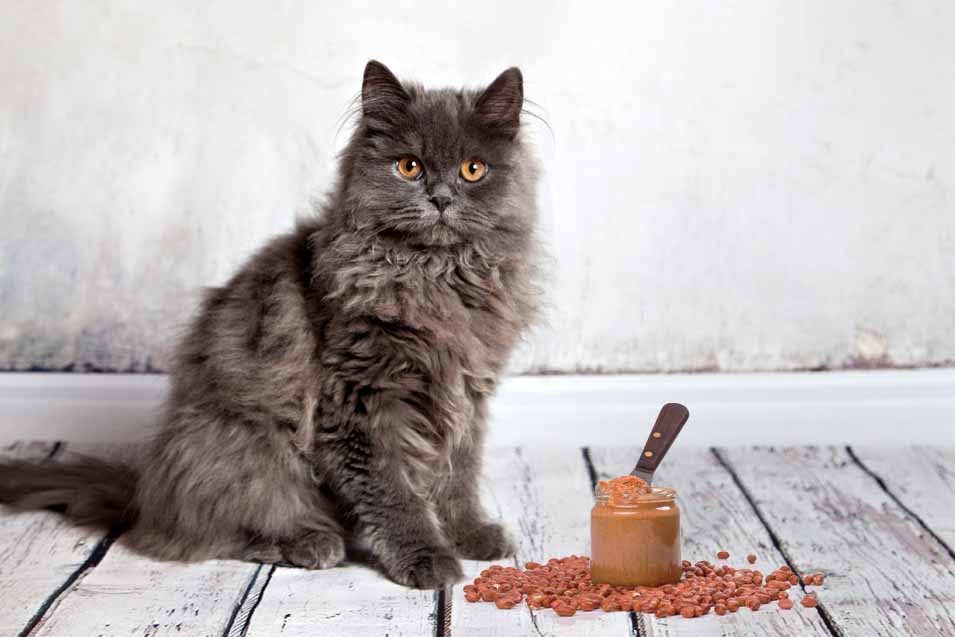
In this article, we will explore the world of Cinnamon and its potential uses, benefits, and risks for cats. From its history and properties to safe usage and potential health advantages, we’ll cover it all to help you make informed decisions about incorporating Cinnamon into your cat’s life.
Cinnamon and Cats
Cinnamon is a popular spice known for its warm, sweet aroma, but it can be problematic for cats. Cats have a strong aversion to strong scents, and Cinnamon falls into that category. If they come into contact with or ingest it, it can cause discomfort, irritation, and potential health issues.
The essential oils in Cinnamon can be toxic to cats, leading to symptoms like vomiting, diarrhea, and even more severe conditions. To ensure your feline friend’s safety, be cautious when using Cinnamon in your home, and keep it out of their reach. Cats are curious creatures, so prevention is critical.
Can Cats Eat Cinnamon?
Cats should not eat Cinnamon. While it’s generally non-toxic, it’s unsuitable for feline consumption. Cinnamon contains essential oils like cinnamaldehyde, which can irritate a cat’s mouth and digestive system and even cause allergies. Inhaling or ingesting Cinnamon can lead to symptoms such as vomiting, diarrhea, coughing, and breathing difficulties.
In severe cases, it may trigger liver or kidney damage. To ensure your cat’s safety, avoid giving them anything containing Cinnamon, and store cinnamon products out of their reach. Always consult a veterinarian if your cat accidentally consumes Cinnamon or exhibits any unusual symptoms, as it can be harmful in specific quantities.

Cinnamon Toxicity in Cats
While not highly toxic to cats, Cinnamon can still be harmful if ingested or inhaled. It contains compounds like cinnamaldehyde, which can irritate a cat’s sensitive digestive system and mucous membranes.
Here’s an overview of cinnamon toxicity in cats:
- Gastrointestinal Issues: Ingesting Cinnamon can lead to symptoms like vomiting, diarrhea, and stomach upset. The oils in Cinnamon can cause irritation and discomfort in the gastrointestinal tract.
- Respiratory Problems: If a cat inhales Cinnamon, it can lead to coughing, sneezing, and difficulty breathing. The fine cinnamon particles can irritate the respiratory passages.
- Allergic Reactions: Cats can develop allergies to Cinnamon, resulting in symptoms such as itching, swelling, and skin rashes.
- Potential Organ Damage: While rare, large quantities of Cinnamon might lead to more severe issues, including liver or kidney damage. This is typically associated with excessive consumption but is a concerning possibility.
To protect your cat, ensure that cinnamon and cinnamon-scented products are kept out of their reach. Be cautious when cooking or baking with Cinnamon in a cat-friendly environment. If you suspect your cat has ingested or been exposed to Cinnamon and shows any unusual symptoms, it’s crucial to contact a veterinarian promptly. They can provide guidance and treatment if necessary to prevent any further complications. Remember, it’s best to avoid giving cats any food or spices like Cinnamon that aren’t specifically designed for their diet.

Safe Usage of Cinnamon for Cats
Cats generally should not consume Cinnamon, but if you want to use it safely in your home, here are a few precautions:
- Secure Storage: Keep Cinnamon and cinnamon-related products out of your cat’s reach, including spices, scented candles, and essential oils.
- Cooking Caution: When using Cinnamon in your kitchen, ensure your cat doesn’t have access to the area. Be vigilant to prevent any accidental ingestion or inhalation.
- Pet-Friendly Alternatives: Consider cat-safe alternatives for scenting your home, such as catnip or pet-friendly air fresheners.
- Veterinary Consultation: If you plan to use cinnamon-based products for your cat (e.g., for flea control), consult a veterinarian first for safe and appropriate usage.
Is Cinnamon used to promote digestive health in cats?
Cinnamon is not typically used to promote digestive health in cats. As mentioned earlier, Cinnamon is generally not recommended for cats due to its potential to cause gastrointestinal irritation and other health issues if ingested. Cats have sensitive digestive systems, and introducing unfamiliar spices or ingredients can lead to digestive problems.
Instead of using Cinnamon, if you have concerns about your cat’s digestive health, it’s best to consult with a veterinarian. They can guide proper feline nutrition and potential supplements or dietary changes to support your cat’s digestive well-being without risking any adverse effects.
Cinnamon can be used for anti-inflammatory properties in cats?
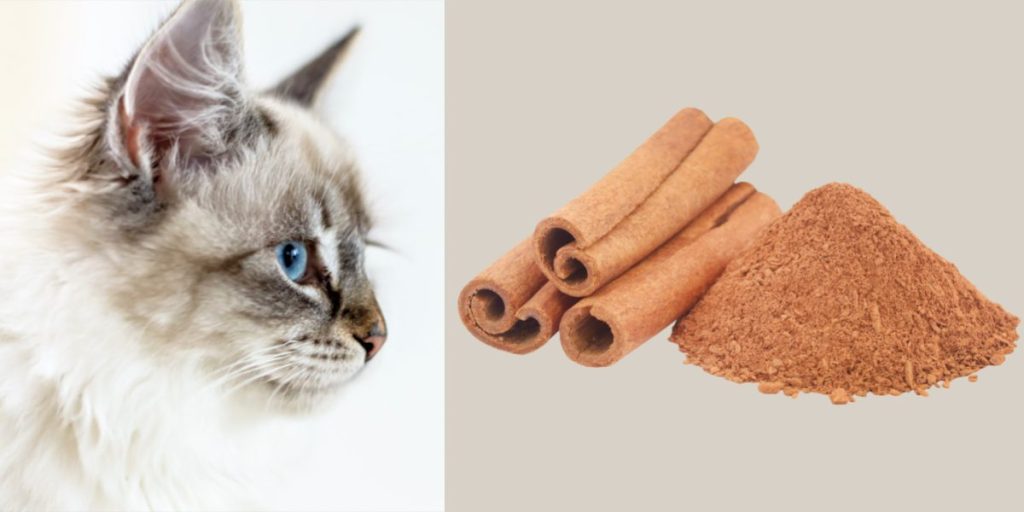
Cinnamon is not typically used for its anti-inflammatory properties in cats. In fact, as mentioned earlier, it’s generally not recommended for cats due to the potential for adverse effects. While Cinnamon contains compounds with potential anti-inflammatory properties in humans, it’s not a safe or established treatment for feline inflammatory conditions.
If you’re concerned about inflammation or any health issues in your cat, it’s essential to consult with a veterinarian. They can provide appropriate guidance and recommend safe treatments or medications that are specifically tailored to your cat’s needs. Using unproven remedies or introducing spices like Cinnamon can be risky and is not a substitute for professional veterinary care.
Antioxidant Effects of Cinnamon in Cats?
Cinnamon does contain antioxidants, which are compounds that can help protect cells from oxidative damage. In humans, antioxidants in Cinnamon, such as polyphenols, have been associated with potential health benefits, including anti-inflammatory and antioxidant effects.
However, when it comes to cats, their digestive systems and metabolisms are different from humans, and their ability to process certain substances can vary. While small amounts of Cinnamon may not be toxic to cats, it’s essential to remember that the digestive tolerance of individual cats may vary. It’s always best to consult with a veterinarian before considering any dietary changes or supplements for your cat.
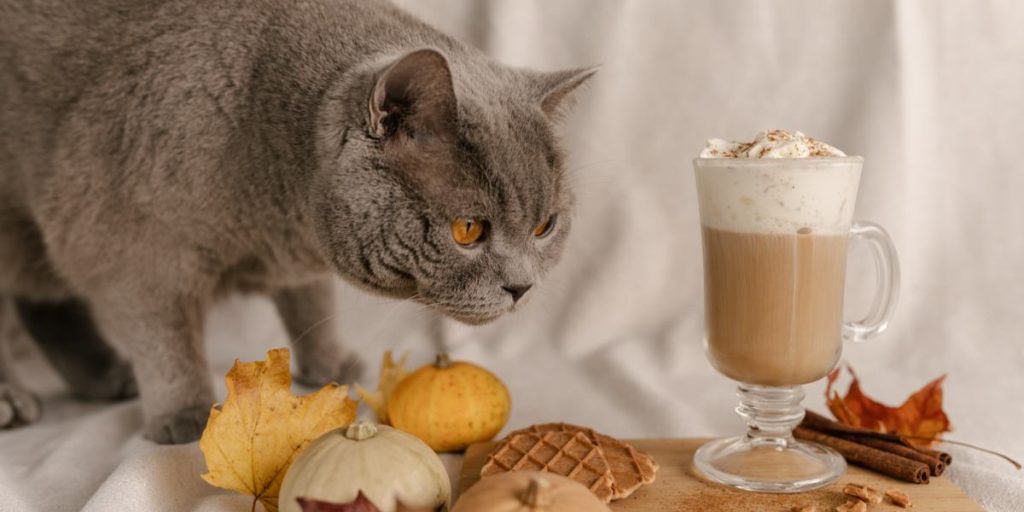
In general, if you are interested in providing antioxidants for your cat, it’s safer to look for cat-specific products or consult with a vet to determine the most appropriate approach for your pet’s health.
Cinnamon Natural Cat Repellent
Cinnamon can be used as a natural cat repellent due to its strong scent, which many cats find unpleasant. Here’s how you can use Cinnamon to deter cats from certain areas or activities:

Cinnamon Powder: Sprinkle cinnamon powder in areas where you want to discourage cats from going, such as garden beds or around potted plants. Be sure to reapply it after rain.
Cinnamon-Soaked Cloths: Soak pieces of cloth or cotton balls in Cinnamon essential oil or create a mixture of water and ground cinnamon. Place these around areas you want to protect.
Cinnamon Sticks: You can also use cinnamon sticks in plants or gardens to deter cats. The sticks release the scent gradually.
Cinnamon Sachets: Create small sachets of cinnamon powder or sticks and hang or place them in areas you want to keep cat-free.
While Cinnamon is generally safe, always monitor your cat’s reaction and ensure they don’t ingest it, as some cats may still be curious. Additionally, consider other cat repellent methods, such as commercial pet-friendly repellents or barriers, and consult a veterinarian if you have concerns about keeping cats away from specific areas.
Allergies and Sensitivities of Cinnamon in Cats
Cinnamon can trigger allergies and sensitivities in some cats due to its compounds, such as cinnamaldehyde and other essential oils. Cats have sensitive respiratory and digestive systems, making them more prone to adverse reactions.
Here’s an overview of allergies and sensitivities related to Cinnamon in cats:
- Respiratory Issues: Cats may develop respiratory symptoms when exposed to Cinnamon, including sneezing, coughing, wheezing, and difficulty breathing. This is because the fine particles from Cinnamon can irritate their delicate airways.
- Dermatological Reactions: Some cats may experience skin irritations, itching, or rashes upon contact with Cinnamon, especially if they come into direct contact with the spice or its essential oils.
- Gastrointestinal Distress: Ingesting Cinnamon can lead to digestive problems like vomiting and diarrhea. The compounds in Cinnamon can cause irritation and discomfort in the gastrointestinal tract.
- Allergic Reactions: In rare cases, cats may develop allergies to Cinnamon. This can result in more severe symptoms, such as swelling, hives, and anaphylactic reactions, which are potentially life-threatening.
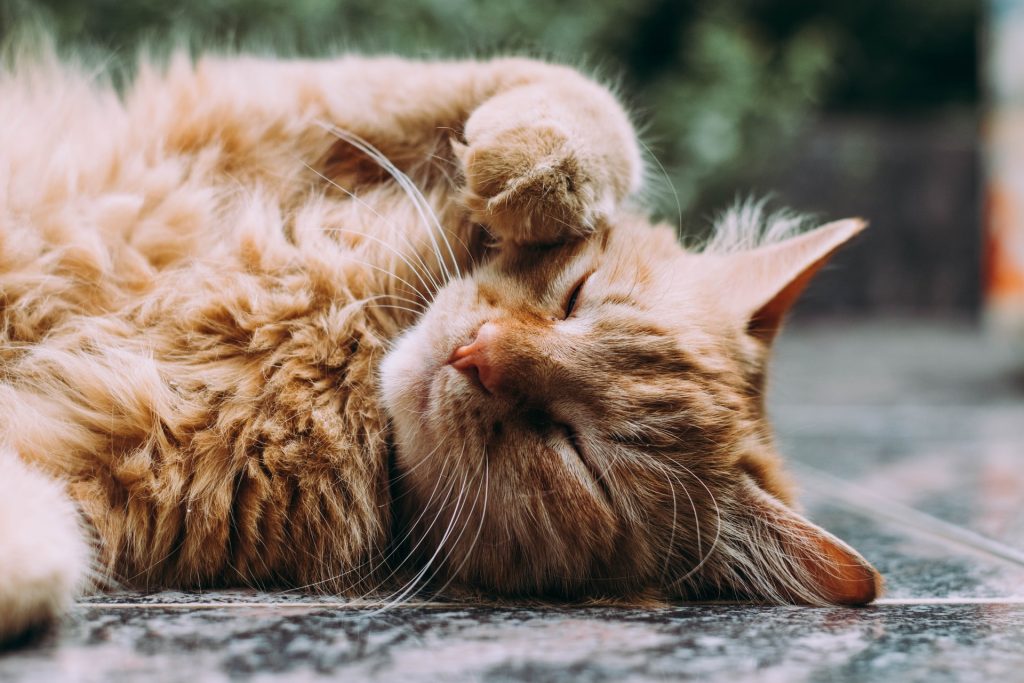
It’s crucial to be cautious with the use of Cinnamon around cats, even as a repellent or in the environment, as allergic and sensitive reactions can vary among individuals. If you suspect your cat has experienced an adverse reaction to Cinnamon, seek immediate veterinary care. Furthermore, always consult a veterinarian before introducing any new substance or spice into your cat’s environment or diet to ensure their safety and well-being.
Should you consult a Veterinarian before giving Cinnamon for Cats?
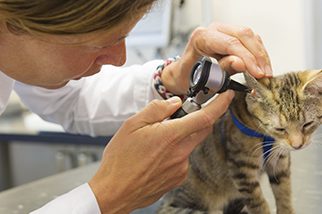
Yes, consulting a veterinarian is essential before giving your cat Cinnamon or any new substance. While small amounts of Cinnamon are generally considered non-toxic to cats, individual cats may react differently. A veterinarian can guide whether it’s safe for your specific cat and can advise on proper dosage if it’s being considered for any therapeutic purpose.
Importantly, a vet can help rule out any allergies or sensitivities your cat may have to Cinnamon, ensuring your pet’s safety and well-being.
It’s always best to seek professional advice before introducing anything new into your cat’s diet or environment.
Key points about Cinnamon for cats
- Cinnamon is Generally Not Recommended: Cinnamon is not typically recommended for cats due to its potential to cause adverse effects, such as digestive issues, respiratory problems, and allergies.
- Ingestion Caution: Ingesting Cinnamon can lead to symptoms like vomiting and diarrhea in cats. Some compounds in Cinnamon can be toxic in larger amounts.
- Respiratory Sensitivity: Cats can be sensitive to the strong scent of Cinnamon, leading to respiratory discomfort if inhaled.
- Allergies and Skin Irritation: Cinnamon can cause allergies and skin irritations in some cats when it comes into contact with their skin.
- Consult a Veterinarian: Always consult a veterinarian before introducing Cinnamon or any new substance into your cat’s environment or diet to ensure their safety and well-being.
- Safe Usage for Repellent: While not recommended for consumption, Cinnamon can be used as a natural cat repellent by placing it in specific areas to deter cats from certain activities.
Remember, individual cats may react differently to Cinnamon, so it’s crucial to prioritize their health and well-being when considering its use.
